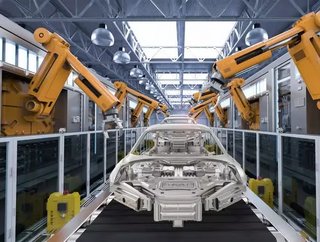Capgemini research shows AI implementation has 'hit a speed bump' in the automotive sector

A new study from the Capgemini Research Institute has found that just 10% of automotive companies are implementing artificial intelligence (AI) projects at scale.
The research also found that fewer automotive companies are implementing AI than in 2017, despite the cost, quality and productivity advantages it may bring.
Capgemini surveyed 500 executives from large automotive companies in eight countries to gain in-depth insight into trends in AI investment and deployment.
SEE ALSO:
-
Volkswagen partners with Amazon Web Services to transform automotive manufacturing
-
Uber to buy Middle East ride-hailing rival Careem for $3.1bn
-
McDonald's acquires AI company Dynamic Yield to fast track its digital transformation
The study identified that roadblocks to technology transformation are still significant and include legacy IT systems, accuracy, data concerns and a lack of skills.
Capgemini highlighted how, since 2017, the number of automotive companies that have successfully scaled AI implementation has increased only marginally (from 7% to 10%).
In contrast, the increase in companies not using AI at all was more significant (from 26% to 39%).
The survey also showed how AI is delivering benefits across every automotive business function.
On average, the report found that AI delivered a 16% increase in productivity across Research and Development (R&D), operational efficiency improvements of 15% in the supply chain and 16% in manufacturing/operations, reduced direct costs of 14% in customer experience and 17% in IT, and reduced time to market by 15% in R&D and 13% in marketing/sales.
Markus Winkler, Executive Vice President, Global Head of Automotive at Capgemini said that the findings showed that “the progress of AI in the automotive industry has hit a speedbump.”
“Some companies are enjoying considerable success, but others have struggled to focus on the most effective use cases, vehicle manufacturers need to start seeing AI not as a standalone opportunity, but as a strategic capability required to shape the future which they must organize investment, talent and governance around,” he said.
“As this research shows, AI can deliver a significant dividend for every automotive business, but only if it is implemented at scale.
“For AI to succeed, organizations will need to invest in the right skills, achieve the requisite quality of data, and have a management structure that provides both direction and executive support.“
- OpenText’s Muhi Majzoub: Engineering Platform Growth with AIEnterprise IT
- OpenText CEO Roundtable: The Future of Safe Enterprise AIDigital Transformation
- OpenText AI: Empowering Businesses in Information ManagementDigital Transformation
- Microsoft in Japan: $2.9bn Investment to Boost AI & CloudCloud & Cybersecurity






